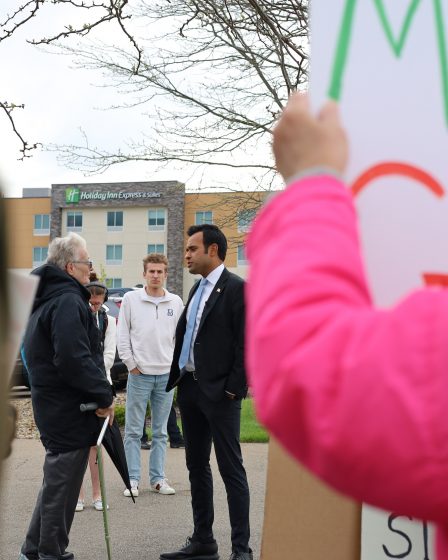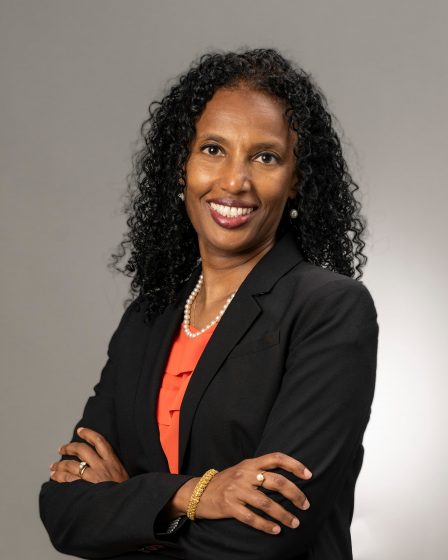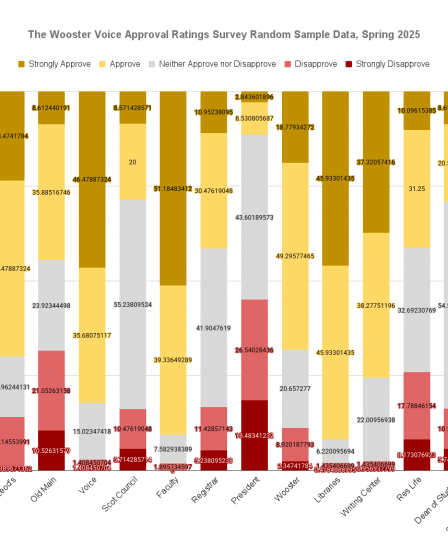Julia Garrison Gianna Hayes News Editors Around 70 protesters stood on the corner of Friendsville and Riffel roads in uptown Wooster, holding signs that prompted car horns and thumbs up from passing cars. “Ohio says NO to Vivek,” said one sign. Another protester waved a …
Front Page
Distinguished alum Meskerem Brhane ’89 announced as 2025 commencement speaker; Rayan Dos Passos ’25 and Karmellah Buttler ’25 announced as student speakers
Julia Garrison News Editor In a memo sent to the campus community, President Anne McCall announced the commencement lineup, which will include two student speakers. Meskerem Brhane ’89 will give the commencement address at the ceremony, slated for May 17 at 10 a.m. in the …
College invites fashion designer to lecture on importance of sustainability and human rights
Zanna Anderson Science and Environment Editor Wooster students, staff, faculty and locals gathered in Lean Lecture Hall on the evening of April 7 to listen to fashion designer Soreyda Benedit Begley’s lecture, “Sustainability Meets Human Rights: A Conversation Through Art.” This lecture was presented by …
Students, faculty, community members gather downtown to rally for science
Gianna Hayes News Editor On Friday, March 7, a crowd formed at the corner of Market Street and Liberty Street in downtown Wooster. Around 30 people, including several College of Wooster students and faculty members, alongside city of Wooster community members, held signs up to …
Spring 2025 Voice approval ratings’ data reflects changes in student opinion
Julia Garrison News Editor A special thanks to those who tabled and especially those who inputted data on behalf of the Voice. An extra special thank you to Helen Oriatti-Bruns, Zach Perrier, Zanna Anderson, Amanda Crouse, Wyn Caudle, Gabriel McCreath, Lain Patton and Kiera McGuire. …
The College complies with bathroom bill amidst student grievances; maintains commitment to gender nonconforming students, staff and faculty
Gianna Hayes News Editor In an email sent out to the campus community on Jan. 30, President Anne McCall outlined responses to recent legislation enacted by the Trump Administration and the Ohio House of Representatives. One such piece of legislation, House Bill (HB) 183 — …





